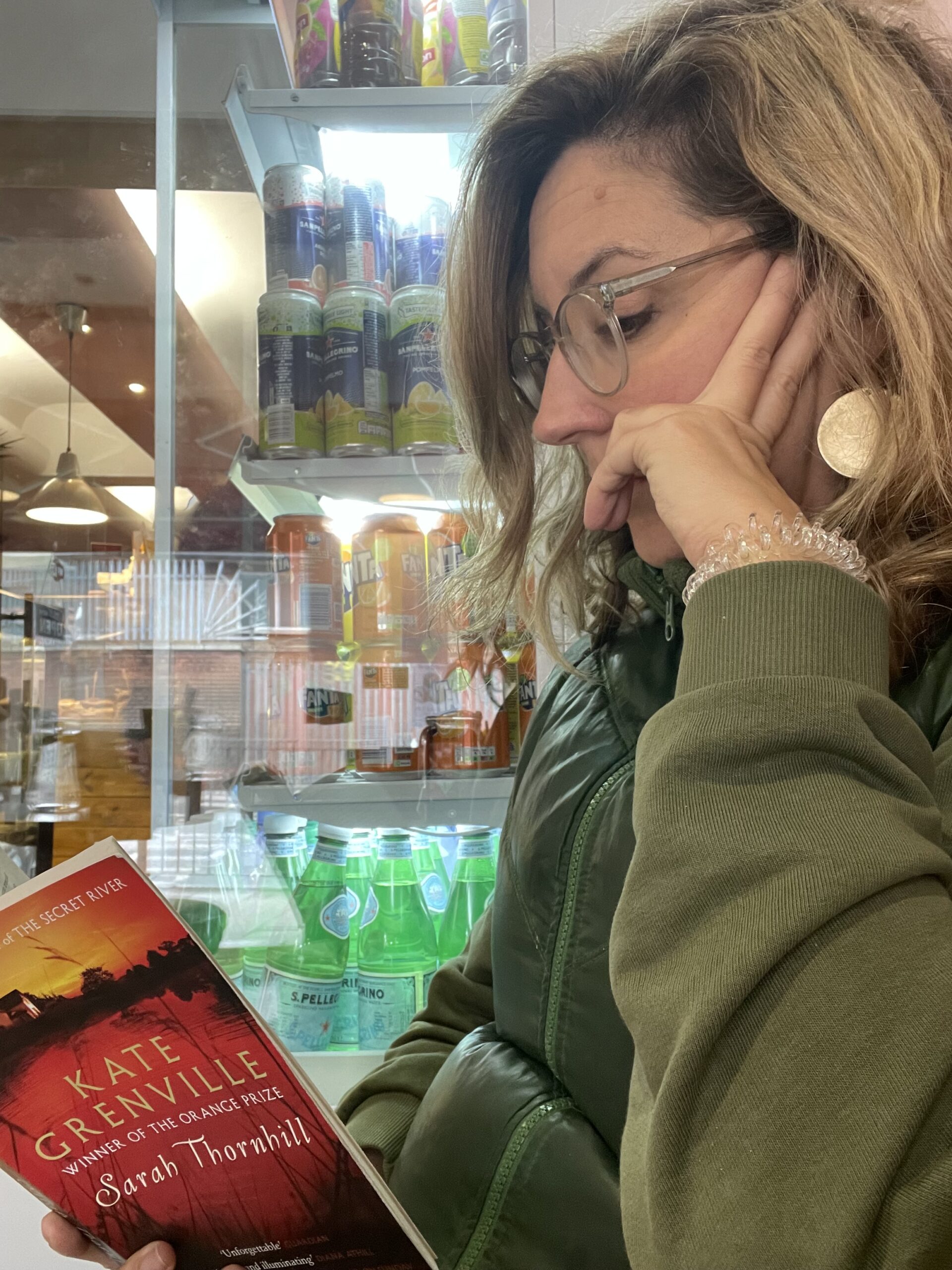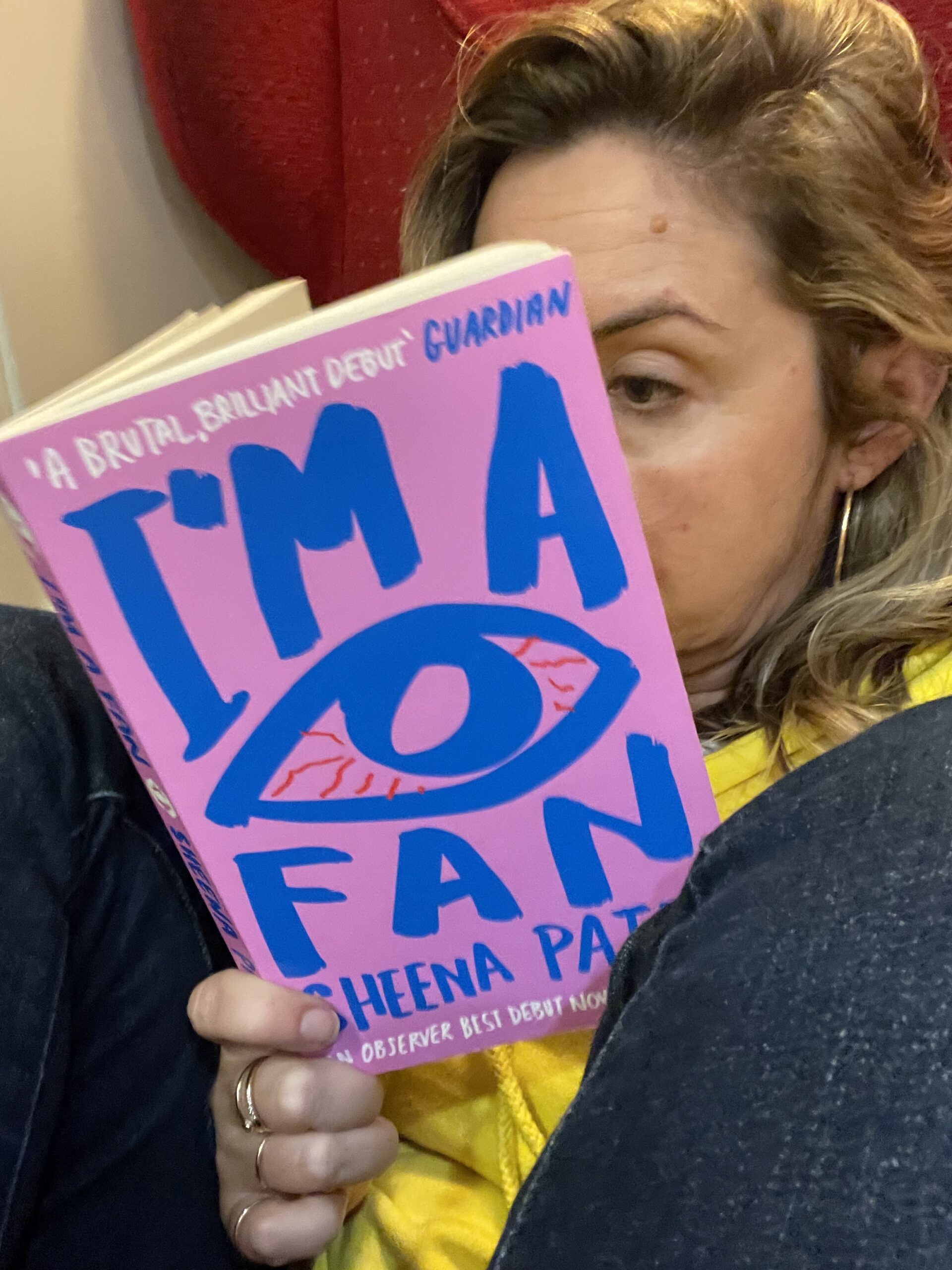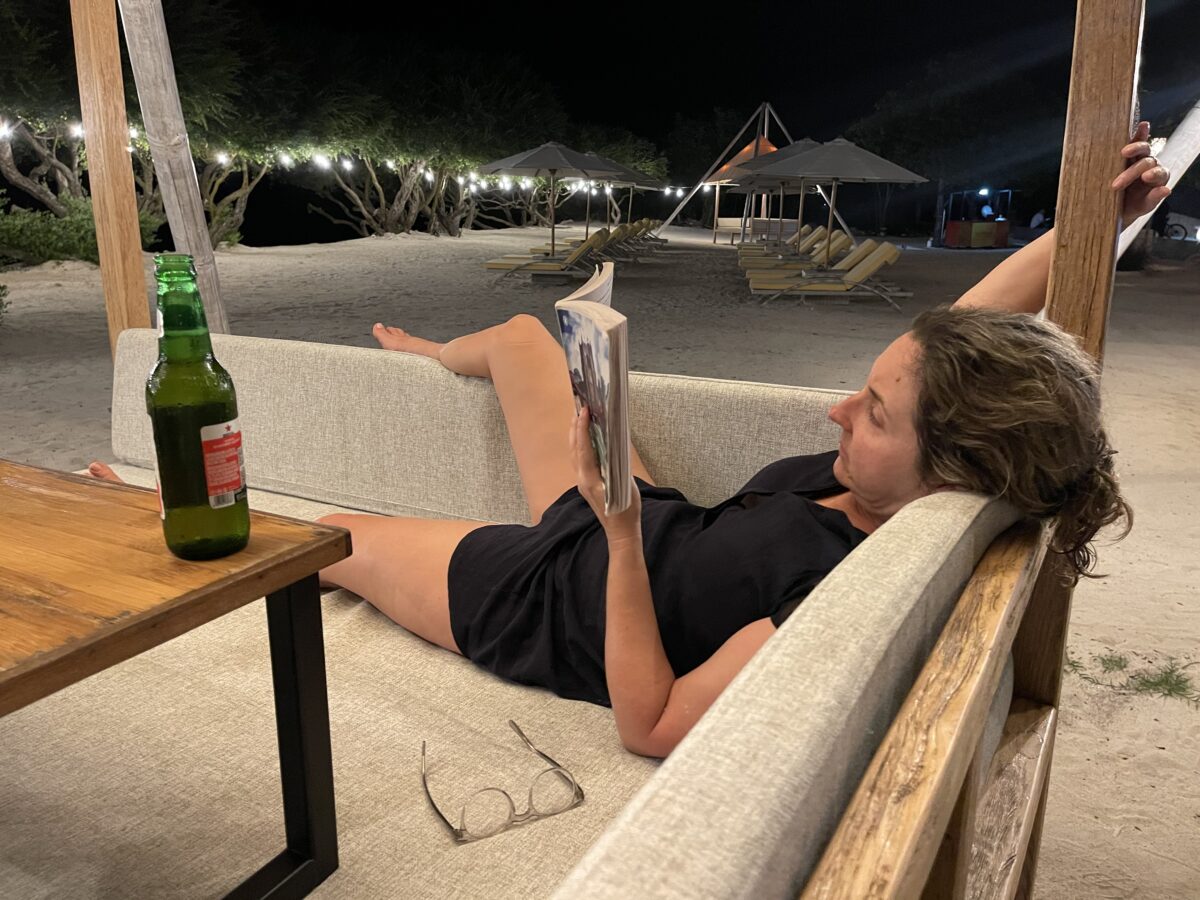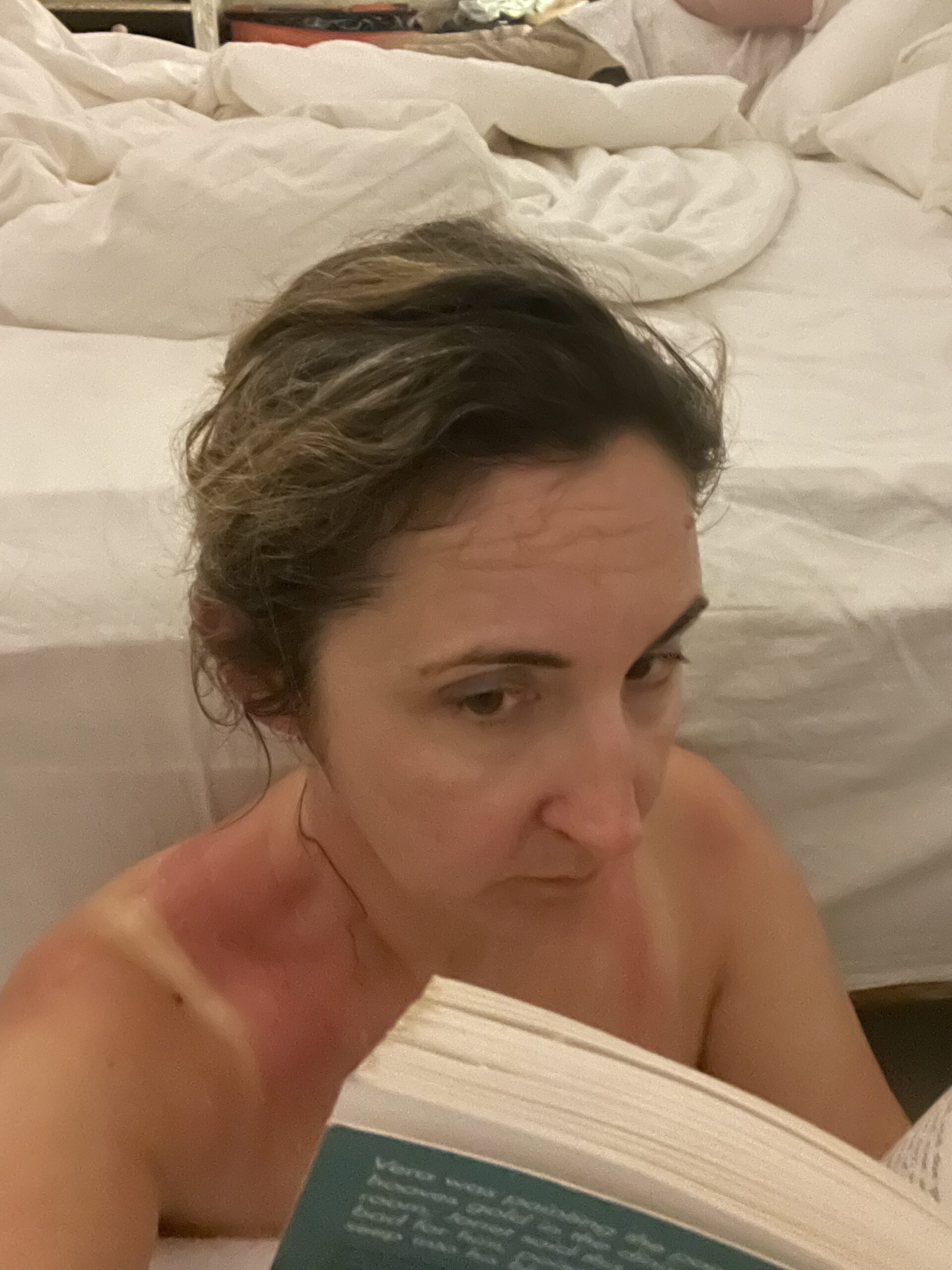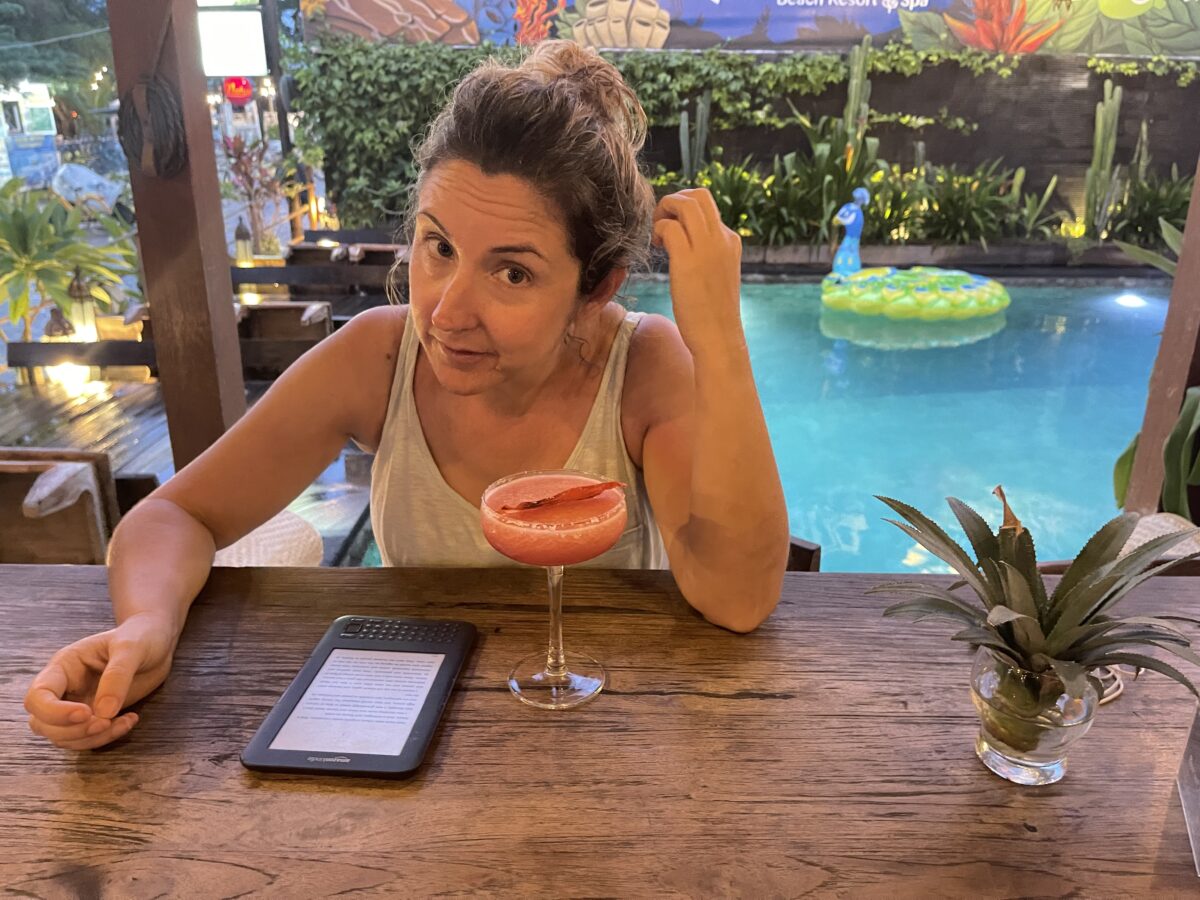I enjoyed Kate Greville’s THE SECRET RIVER so much that I had to go almost instantly to its sequel, SARAH THORNHILL. The first one covered the life of a English convict transported to Australia, and the terrible things he did to build himself a life there. The second one tells the story of his daughter, who has to deal with these terrible things.
Sarah, the daughter, falls in love with a man, Jack, who is mixed race. All is going well until her parents find out, and then they reveal SPOILER ALERT their part in the killing of ten Aborigines some twenty years before. Horrified, he leaves her. Then she does a lot of suffering, both over being left and over guilt about what her parents did.
I wanted to buy it, but I just didn’t. The author seems to live in a moral universe where people are naturally going to be tortured over stuff done before they are born. I would like to live in this moral universe, but the challenge is I just don’t think it exists. I don’t think it exists today, and I definitely don’t think it existed for the Victorians, especially not in that context.
That said, Greville is a banging writer and it’s a great book. Perhaps it is a failure of my own cynicism that I was not able to enjoy it more.

